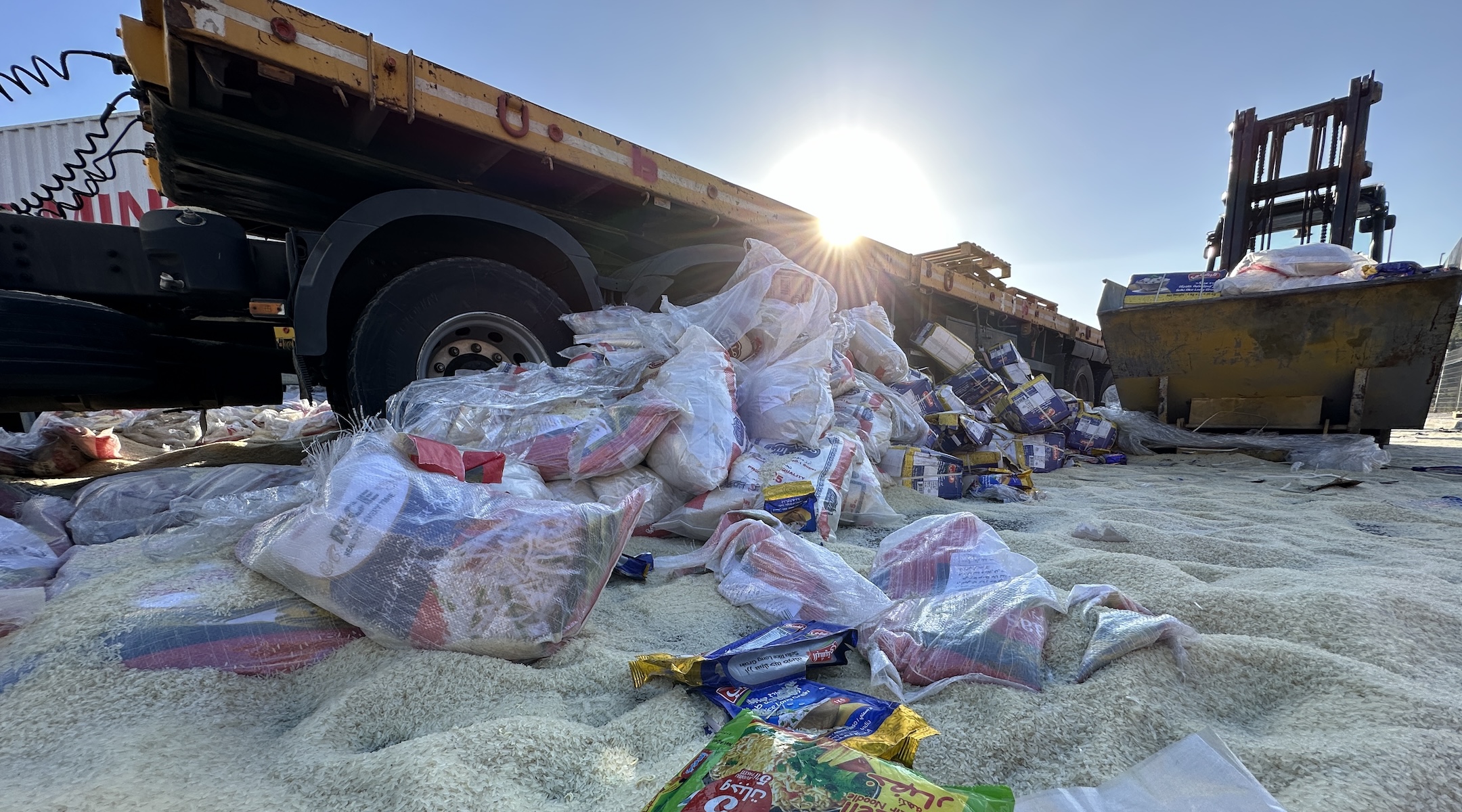US slaps sanctions on Tsav 9, Israeli group targeting humanitarian aid to Gaza
The group added to the U.S. sanctions list is Tsav 9, which says aid should be stopped because it ends up in the hands of Hamas

TARQUMIYAH, WEST BANK – MAY 13: Humanitarian aid supplies dumvped by Jewish settlers to road near Tarqumiyah military checkpoint in Hebron, West Bank on May 13, 2024. Jewish settlers stopped the trucks en route to Gaza Strip to help Palestinians in need, and dumped the supplies on the road. (Photo by Ibrahim Hamad/Anadolu via Getty Images)
The Biden administration imposed sanctions Friday on an Israeli group for attacking humanitarian aid convoys destined for Palestinian civilians in Gaza, in the latest round of penalties against far-right Israelis accused by Washington of undermining efforts toward peace and stability.
The group added to the U.S. sanctions list is Tsav 9, which says aid should be stopped because it ends up in the hands of Hamas — a view shared by a majority of Israelis.
For months, Tsav 9 activists have organized to block convoys, harass aid workers and damage aid trucks as well as goods meant to alleviate pervasive hunger and suffering in Gaza. The group’s name means Order 9 in Hebrew, a reference to the military’s order calling up reservists.
The announcement by the State Department of the financial restrictions on Tsav 9 cites a May 13 incident in which activists looted and then set fire to two trucks in the West Bank carrying aid bound for Gaza.
The State Department called on Israel to protect the convoys from attacks and ensure their passage to Gaza.
“We will not tolerate acts of sabotage and violence targeting this essential humanitarian assistance,” the announcement from the State Department says. “We will continue to use all tools at our disposal to promote accountability for those who attempt or undertake such heinous acts, and we expect and urge that Israeli authorities do the same.”
Announcements of sanctions on Israelis began in February following an executive order signed by President Joe Biden aiming to stem rising violence between Israelis and Palestinians in the West Bank.
Before targeting Tsav 9, the United States imposed sanctions on several Israeli settlers involved in attacks against Palestinians as well as organizations involved in supporting extremists.
Financial institutions under U.S. jurisdiction are required to freeze assets belonging to sanctioned groups and individuals, and American citizens are prohibited from aiding them.
This article originally appeared on JTA.org.
















